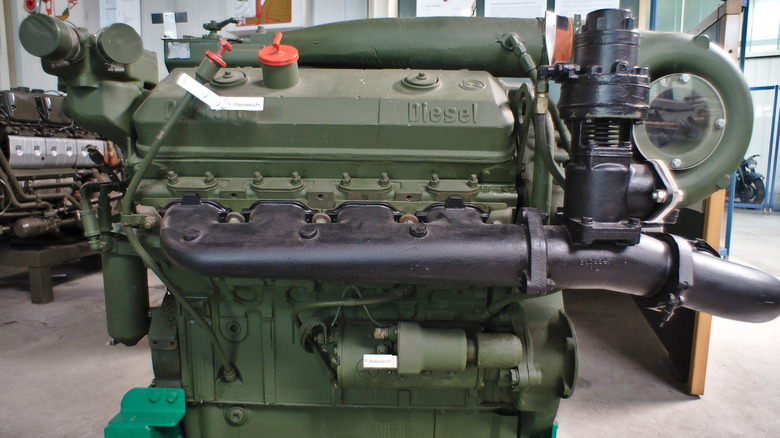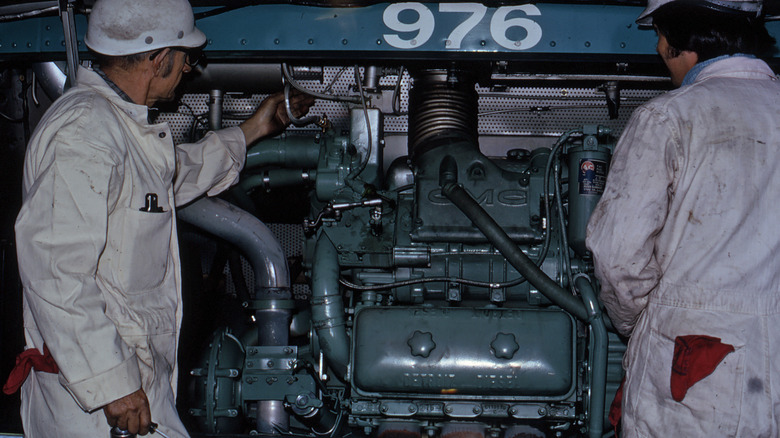When (And Why) Detroit Diesel Stopped Making 2-Stroke Engines
When it comes to engine manufacturing, Detroit Diesel stands up there with the best of them. Established in 1938 as a General Motors division, the company primarily focused on manufacturing diesel engines for some of GM's vehicle applications in its early years. Its first engine was a 2-stroke called the Series 71, a powerful model that saw extensive use, from military applications the M4A2 Sherman tank, to civilian uses, like in the MCI MC9 Crusader II bus. The Series 71 was long-lived, with Detroit only discontinuing it in 1995, three years before the manufacturer made one of the most impactful changes in its history, leaving 2-stroke engines behind entirely.
This pivot happened in 1998, when the company stated that it would be shifting its focus to 4-stroke engines like the Series 60, which played a pivotal role in American trucking. The decision was heavily influenced by emissions laws of the time, which Detroit Diesel cited as one of the reasons it was setting aside the 2-strokes. Alongside emissions, there was also a need to make more fuel-efficient engines.
Pros and cons of 2-stroke diesel engines
While 4-stroke engines proved to be more efficient and adhered to the new emissions laws, 2-strokes still had a few advantages that made it difficult for some enthusiasts to let go. One of these was their lighter weight compared to their 4-stroke counterparts. Due to how quickly they fire, the 2-strokes were also more potent with a more instantaneous power delivery. However, these engines had a few issues that made them less ideal in the long run.
Besides not meeting emissions standards, 2-stroke engines were also less fuel-efficient, offering fewer mpg than 4-stroke engines. 2-stroke engines were also less durable, due to their lubrication system needing oil mixed in with the fuel. It's worth noting that said oil is also not cheap. In contrast, 4-stroke engines, while heavier and not as powerful, tend to last longer thanks to their different lubrication system.
In recent years, Detroit Diesel has shifted into newer markets such as the zero-emissions sector. Despite this, Detroit Diesel still makes diesel engines and continues to support them. Currently, mtu Solutions keeps Detroit's old 2-stroke diesels alive, offering remanufactured parts and maintenance services for the Series 53, 71, 92, and 149 diesel engines.

